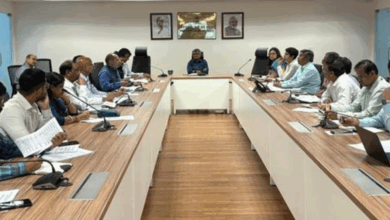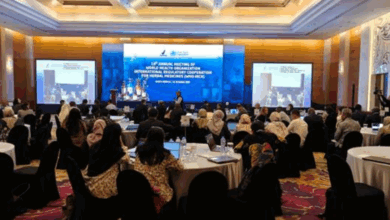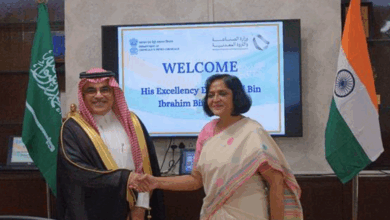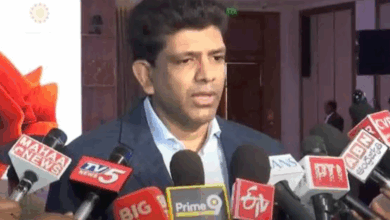Dr Mansukh Mandaviya chairs the seminar on Safe Use of Chemicals at Workplace; MoU with ILO on International Chemical Safety Cards (ICSCs) signed
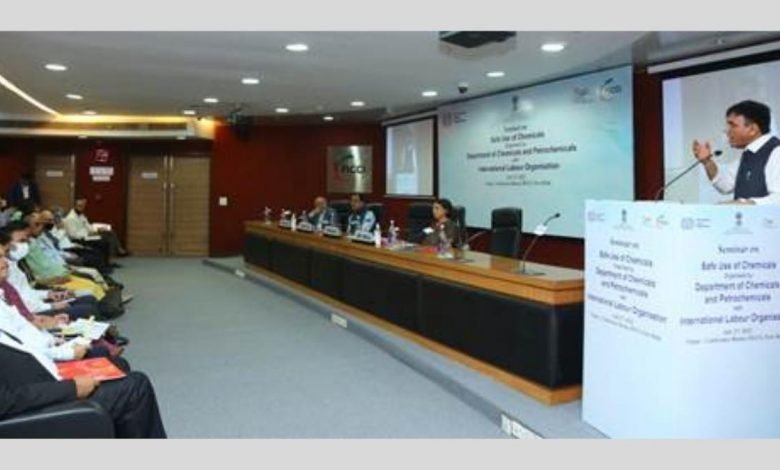
Industry and workers’ safety has been India’s top priority; can be ensured by adhering to International standards, robust procedures, training sessions and technologies: Dr Mansukh Mandaviya
Union Minister for Chemicals and Fertilisers, and Health & Family Welfare, Dr Mansukh Mandaviya chaired a seminar on “Safe Use of Chemicals at Workplace”, here today. Shri Bhagwanth Khuba, Minister of State (Chemicals & Fertilizers and New & Renewable Energy) graced the occasion. The seminar was organised by the Department of Chemicals and Petrochemicals (DCPC)and the International Labour Organisation (ILO).. A Memorandum of Understanding (MoU) was signed in presence of Union Minister Dr Mandaviya between DCPC and ILO for adopting the International Chemical Safety Cards (ICSCs).
Dr. Mansukh Mandaviya said that Worker’s safety and humane behaviour have been India’s top priority. We have accepted global best practices wholeheartedly to ensure the development and welfare of our citizens. He mentioned that the “chemical industry is a critical and integral part of the growing Indian economy. It occupies a vital position in meeting our basic needs, developmental needs and improving the quality of our daily lives.”
He underlined that often catastrophic accidents can happen related to chemicals, mainly due to a lack of proper safety measures. This calls for adhering to global safety standards and practices, he noted. “It is crucial that international standards developed by ILO are adopted by India as this will not only mitigate industrial accidents but also ensure further alignment with global best practices”, he added.
He exhorted all stakeholders to ensure that information about not only these ICSCs but also safety regulations are conveyed adequately to the workers. He said that “Industry safety can be ensured by adhering to international standards for storage and processing, putting safest and efficient procedures, installing robust technologies in place. This can be ensured by spreading awareness and creating capacity building among workers through training sessions”.
“Government collaborating with ILO to create a cadre of trainers to further ensure safety measures in industries”
Dr. Mandaviya urged various stakeholders including government officials, experts and industry leaders to engage in a brainstorming session. He said that such stakeholder consultations will bring out innovative ideas which can be further used as the basis of future legislations and steps.
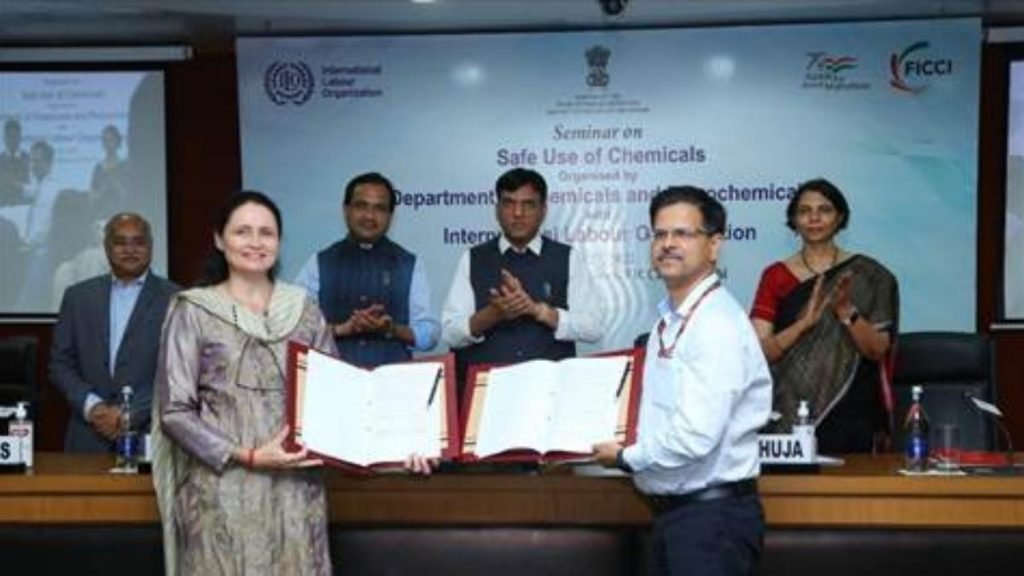
Shri Bhagwant Khuba, Minister of State for Chemicals and Fertilizers and New & Renewable Energy noted that India’s stature has risen globally in the chemical sector and thus it becomes a need that we look at the sector not just from a production basis but safety aspects as well. He said that the Industrial workers from floor-level to managerial level must be made aware of possible hazards at the workplace and must be equipped with adequate knowledge to deal with them in case of any emergency.
He said that such training sessions and safety mock drills are not only important for workers’ safety but also play a key role in our environment as well. He also thanked all the participants and echoed the need that “all stakeholders must learn and grow together as only this could ensure that our industries function without any harm and hazard, without losing any lives.” He was hopeful that this MoU between DCPC and ILO would further enforce our efforts in the implementation of safety regulations in the country.
Training sessions and safety mock drills are not only important for workers’ safety but also play a key role in our environment: Shri Bhagwanth Khuba
About International Chemical Safety Cards (ICSCs)
The International Chemical Safety Cards (ICSCs) are data sheets intended to provide essential safety and health information on chemicals concisely. The primary aim of the Cards is to promote the safe use of chemicals in the workplace. The main users are workers and those responsible for occupational safety and health.
The International Chemical Safety Cards (ICSCs) will be used by the department to disseminate the appropriate hazard information on chemicals at the workplace in a comprehensible and easy manner. To date, 1784 Chemicals Safety Cards are available. The ICSCs are developed by the World Health Organization (WHO) and the International Labour Organisation (ILO) with the cooperation of the European Commission and are regularly updated to take account of the latest scientific developments. These cards are helpful for the dissemination of the appropriate hazard information on chemicals to industry associations to promote the safe use of chemicals in the workplace.
Ms Arti Ahuja, Secretary (Dept. Of Chemicals & Petrochemicals), Shri Susanta Kumar Purohit, Joint Secretary, Ms Dagmar Walter, Director, ILO, Shri Prabh Das, Chairman, FICCI Petrochemical Committee and other industry leaders were present in the meeting.
Disclaimer : This is an official press release by PIB.



